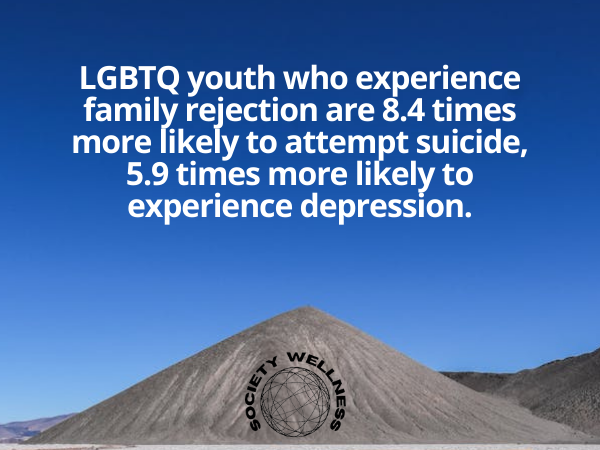Addiction is not just a personal struggle—it deeply impacts romantic relationships, friendships, family connections, and chosen families. For LGBTQ individuals, the intersection of substance use, mental health struggles, discrimination, and past trauma creates additional challenges when trying to maintain or rebuild relationships in recovery.
Maintaining healthy, respectful relationships in sobriety is a critical aspect of long-term recovery. This is why sober respect, which involves mutual understanding, communication, and trust-building, is essential. Whether repairing a strained romantic relationship, reconnecting with friends and family, or forming new relationships based on shared values, practicing sober respect can help LGBTQ individuals foster meaningful, supportive, and fulfilling connections.
In this guide, we explore:
- How addiction damages relationships within the LGBTQ community
- The importance of sober respect in building healthy relationships
- Ways to rebuild trust and establish boundaries after addiction
- How LGBTQ-specific addiction treatment programs support relationship healing
- Steps to maintaining sober, respectful relationships after rehab
If you or a loved one is in addiction recovery and working to rebuild relationships, understanding how to establish sober respect and healthy communication will set the foundation for long-term success.
How Addiction Damages LGBTQ Relationships
Addiction affects relationships in profound ways, often leading to broken trust, emotional turmoil, and instability. LGBTQ individuals often experience unique relationship struggles related to identity acceptance, trauma, discrimination, and social isolation, which makes rebuilding relationships after addiction even more complex.
1. Loss of Trust in Romantic Partnerships
- Substance use often leads to dishonesty, secrecy, or infidelity, which causes deep emotional wounds.
- A partner may feel neglected, hurt, or unimportant due to addiction’s effect on emotional and physical intimacy.
- Codependency and enabling behaviors may develop, where one partner enables the addiction out of love or fear of abandonment.
2. Struggles with Chosen Families
- Many LGBTQ individuals build chosen families due to family rejection, but addiction can cause distance and fractures in these vital relationships.
- Friends may feel helpless or frustrated watching a loved one struggle with addiction, leading them to pull away.
- Trust can be broken when addiction leads to reckless behavior, financial instability, or emotional volatility.
3. Impact on Friendships and Social Circles
- Many LGBTQ social spaces, especially in club and party scenes, involve heavy substance use, making it difficult to navigate sober friendships.
- Friendships built on substance use rather than genuine connection may dissolve in recovery.
- Some friends may struggle to support a sober lifestyle, creating tension between those in recovery and those who continue using substances.
4. Workplace and Community Challenges
- Addiction can lead to work-related issues, absenteeism, or job loss, straining professional relationships.
- LGBTQ individuals may already face workplace discrimination, and substance use may increase their vulnerability to job instability or stigma.
Recognizing these patterns is the first step in addressing relationship challenges in recovery.
What Is Sober Respect and Why Is It Important?
Sober respect refers to the ability to engage in healthy, respectful, and mutually supportive relationships while prioritizing sobriety. It ensures that relationships are built on:
- Trust and honesty—clear, open communication about struggles and recovery progress.
- Emotional and physical boundaries—creating limits that protect both individuals in a relationship.
- Accountability and reliability—being responsible and showing up for loved ones consistently.
- Support and encouragement—choosing relationships that foster growth, healing, and personal development.
- Mutual respect for sobriety—surrounding yourself with people who understand and honor your recovery journey.
Sober respect is especially important for LGBTQ individuals who rely on strong social connections and chosen families for emotional and psychological support.
Rebuilding Trust in LGBTQ Relationships After Addiction
Healing relationships after addiction takes time, commitment, and willingness to change. Here are key steps LGBTQ individuals can take to rebuild healthy, sober relationships:
1. Acknowledge Past Mistakes Without Shame
- Taking responsibility for past behaviors is a crucial step toward rebuilding trust.
- Sincerely apologize to those who were hurt by addiction-related actions.
- Avoid making excuses—acknowledge the impact of your behavior and commit to making amends.
2. Allow Time for Healing
- Trust is not rebuilt overnight—give relationships time to heal naturally.
- Understand that some people may not be ready to reconnect, and that’s okay.
- Consistently show up as your best self to rebuild lost trust.
3. Be Transparent and Honest About Recovery
- Keep communication open, honest, and vulnerable with loved ones.
- Set clear expectations about what they can expect from you in recovery.
- Ask for their support in ways that help, such as attending sober-friendly activities.
4. Set and Respect Boundaries
- Protect your sobriety by avoiding toxic relationships that encourage old habits.
- Be clear about your personal needs and limitations in relationships.
- Understand that setting boundaries is a sign of self-respect, not selfishness.
5. Engage in LGBTQ-Specific Support Groups
- LGBTQ peer support groups offer a safe space to share relationship struggles and recovery experiences.
- Connecting with others who share similar challenges fosters mutual understanding and encouragement.
Rebuilding trust requires patience, but prioritizing sober respect and communication creates the foundation for stronger, healthier relationships.

How LGBTQ Addiction Treatment Programs Support Relationship Healing
LGBTQ-specific addiction treatment programs help individuals navigate the complexities of relationships and recovery by offering identity-affirming care and therapy.
1. LGBTQ Partial Hospitalization Program (PHP)
- Best for: Individuals needing structured, full-time addiction treatment.
- Includes:
- Relationship counseling for rebuilding healthy connections.
- Trauma-informed therapy to heal past relationship wounds.
- Emotional regulation skills to improve communication and conflict resolution.
2. LGBTQ Intensive Outpatient Program (IOP)
- Best for: Those transitioning from PHP or needing flexible therapy while rebuilding relationships.
- Includes:
- Relapse prevention strategies for maintaining sober respect in relationships.
- Couples and family therapy sessions to rebuild lost trust.
- Guidance on setting boundaries with past toxic relationships.
3. LGBTQ Evening Outpatient Treatment Program
- Best for: Individuals who need continued relationship and recovery support while managing daily responsibilities.
- Includes:
- Evening therapy sessions to support relationship and personal growth.
- Community-building activities to form meaningful sober friendships.
4. LGBTQ Meth Addiction Treatment Program
- Best for: Individuals recovering from chemsex and stimulant-related addiction.
- Includes:
- Education on healthy sexual and emotional relationships in sobriety.
- Strategies for breaking co-dependent or enabling relationships.
These programs offer personalized support to strengthen relationships while fostering long-term recovery.
Conclusion
Rebuilding and maintaining healthy, sober relationships is one of the most important steps in recovery. Practicing sober respect fosters mutual trust, accountability, and emotional support, helping LGBTQ individuals form stronger connections that support their long-term sobriety.
If you or someone you love is struggling with addiction and relationships, help is available. Call LGBTQ Behavioral Health today at 888.964.8116 to learn more about our LGBTQ addiction treatment programs and start your journey toward healthier, more fulfilling relationships in sobriety.
FAQ About Addiction, Relationships, and Sober Respect in LGBTQ Recovery
How does addiction affect relationships in the LGBTQ community?
Addiction can lead to broken trust, emotional distance, dishonesty, and unhealthy dynamics in romantic relationships, friendships, and chosen families. LGBTQ individuals may also face added challenges such as discrimination, rejection, and mental health struggles that complicate recovery.
What is sober respect, and why is it important in recovery?
Sober respect means prioritizing healthy, honest, and supportive relationships that align with your recovery goals. It involves:
- Building trust through honesty and accountability
- Setting boundaries to protect your sobriety
- Surrounding yourself with people who respect your recovery journey
- Developing emotional intelligence and communication skills
How can LGBTQ individuals rebuild trust in relationships after addiction?
Rebuilding trust requires:
- Apologizing sincerely for past mistakes without making excuses
- Being consistent in actions and words to prove reliability
- Giving loved ones time to heal and respecting their process
- Engaging in therapy and support groups to learn healthy relationship skills
What role do LGBTQ addiction treatment programs play in relationship healing?
LGBTQ rehab centers provide:
- Trauma-informed therapy to address past relationship wounds
- LGBTQ-affirming relationship counseling for romantic partners and chosen families
- Support groups that focus on developing healthy social connections
- Recovery coaching to help navigate friendships, dating, and community reintegration
How can I maintain healthy relationships in sobriety?
To maintain positive, sober relationships, LGBTQ individuals should:
- Choose friendships and partners who support sobriety
- Communicate openly and honestly about needs and boundaries
- Engage in LGBTQ recovery communities for social support
- Continue therapy or counseling to strengthen emotional resilience
Where can LGBTQ individuals find affirming addiction treatment?
LGBTQ Behavioral Health offers specialized addiction treatment programs that support relationship healing and long-term recovery.

